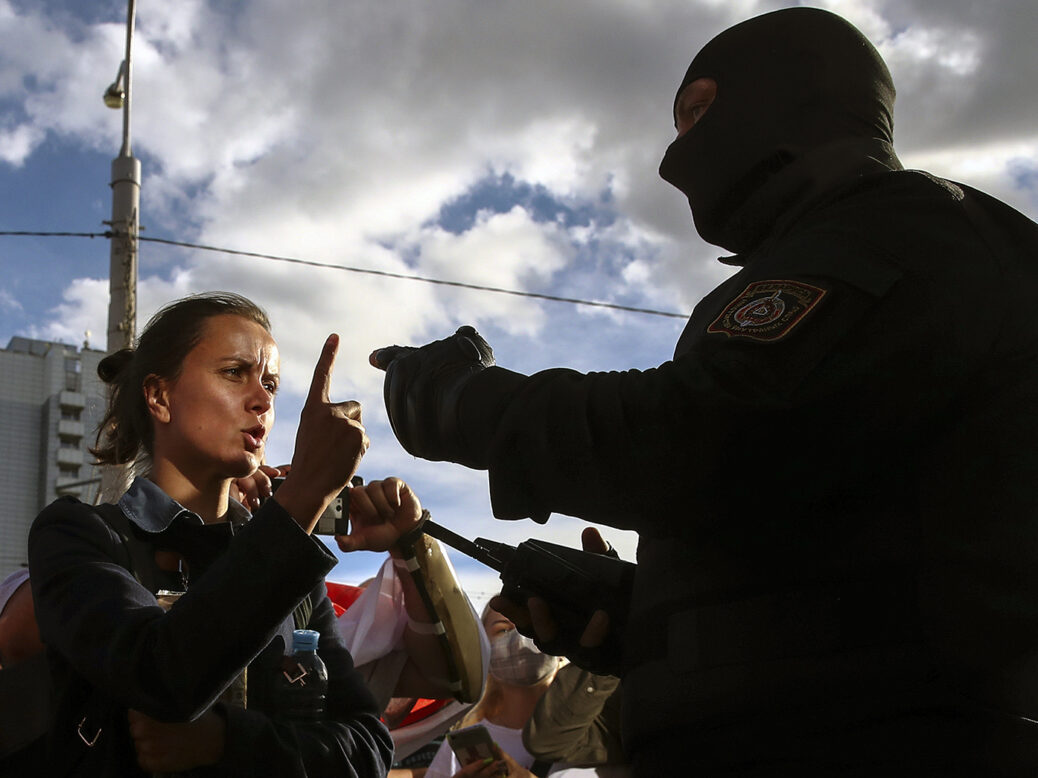
BERLIN – A pro-Russia authoritarian regime lacking popular consent that maintains power only with Moscow’s backing and rules with an iron first? Vladimir Putin’s possible plans for Ukraine, following a massive invasion launched in the early hours of today (24 February), may resemble how Alexander Lukashenko has ruled Belarus over the past two years.
Western intelligence believes that Putin intends to topple Volodymyr Zelensky’s democratic government in Kyiv, replacing it with a pro-Moscow puppet regime. Though he will need to fight hard for Ukraine, he may well win a military victory. Yet victory on the battlefield will be just the start, if the plan is to conquer and hold on to the whole country. Then will come the tricky business of ruling a hostile population of over 40 million.
Any Russian-backed Ukrainian client state would face immense popular resistance across the country, from the Russian-speaking east to the Ukrainian-speaking west. At least initially it would require significant backing from Moscow to maintain its hold on power and contain an anti-Russian partisan movement. The solution may be found in the methods pioneered in Lukashenko’s Belarus.
Since protests against the results of an election in 2020 that Lukashenko is widely considered to have rigged, Belarus has become a near-totalitarian regime. Anti-government protest is harshly repressed; dissidents are kidnapped from abroad; opposition politicians are jailed. Civil society organisations and political freedoms are all but non-existent.
“Today’s Belarus serves as an example that it is possible to control a country through nothing but harsh repressions,” said Tadeusz Giczan, a Belarusian journalist who has been strongly critical of Lukashenko’s government. “If anything, Belarus over the last year and a half showed Putin that something similar can be done with Ukraine.”
Russia will be required to maintain a military occupation of the territories it chooses to conquer for months or years, until it has purged and re-engineered the Ukrainian government. If it ever hopes to lift its occupation, which will prove costly both in blood and treasure, it will need to be sure that the new collaborationist authorities can contain inevitable anti-Russia popular sentiment and the likely partisan movement. That will involve massive repression and purges of officials loyal to Ukraine at every level, as well as a harsh crackdown on dissent.
Ukraine will likely not be fully sovereign while it remains a puppet state. The Russian regime may plan to be directly involved in running the country for years to come. And even if Ukraine is ruled by collaborationist authorities rather than Russia itself, the precedent set by today’s invasion is unmistakable: a toe out of line will result in Russian tanks on the streets of Kyiv.
As the historian Serhii Plokhy told me this month, Ukraine cannot be both a democracy and pro-Russian. The Ukrainian population is so hostile to Moscow that any government that leaned towards friendly relations with Russia could not survive long in office were it to rely on popular consent. That was true before the war but it will be far more so following Russia’s unprovoked invasion, which is hardly likely to win it popular support from the Ukrainian people.
The Ukraine Russia may be planning to create will then not look like modern Russia, or even Ukraine before the 2014 Maidan Revolution, which both retained vestiges of opposition politics and some political freedoms. It could instead look more like Belarus — at home a government with no popular buy-in which maintains power with authoritarian methods, abroad a regime totally subjugated to Russia in geopolitical and economic terms.
[See also: Russia’s invasion of Ukraine changes everything]






